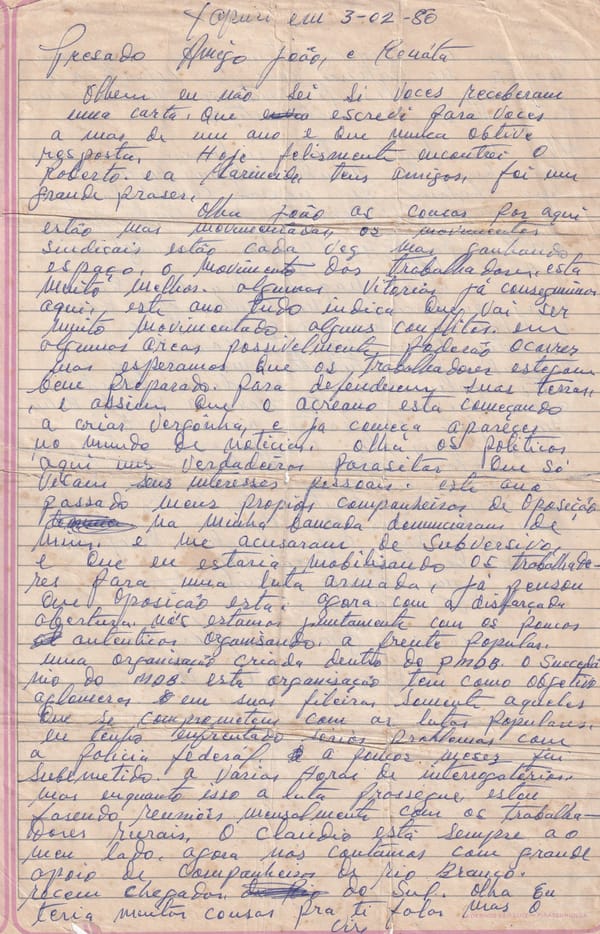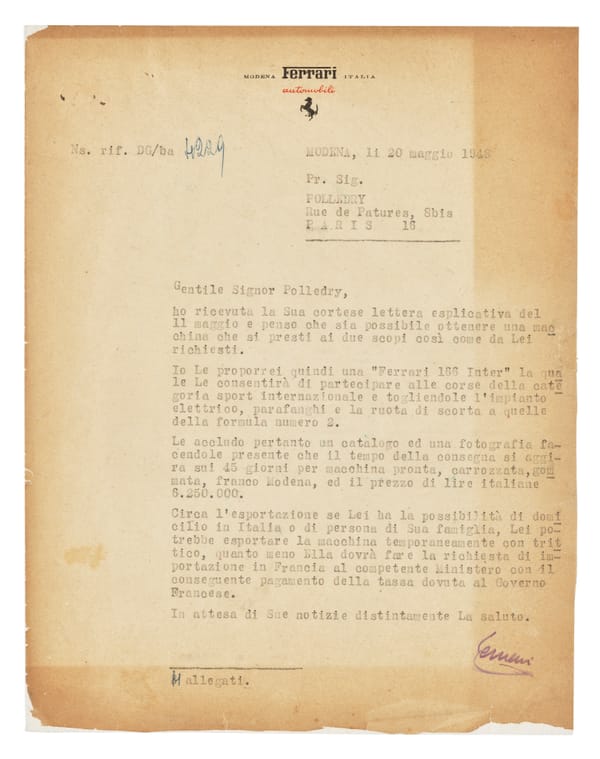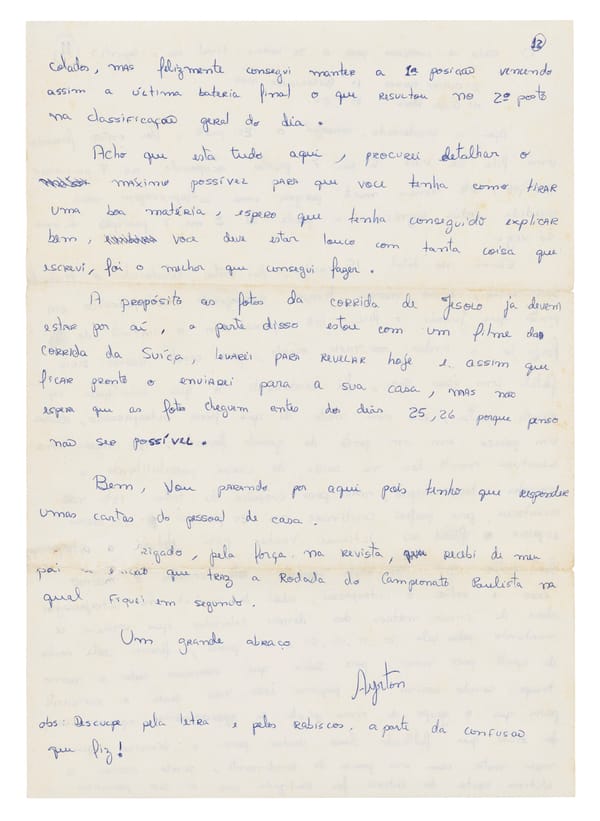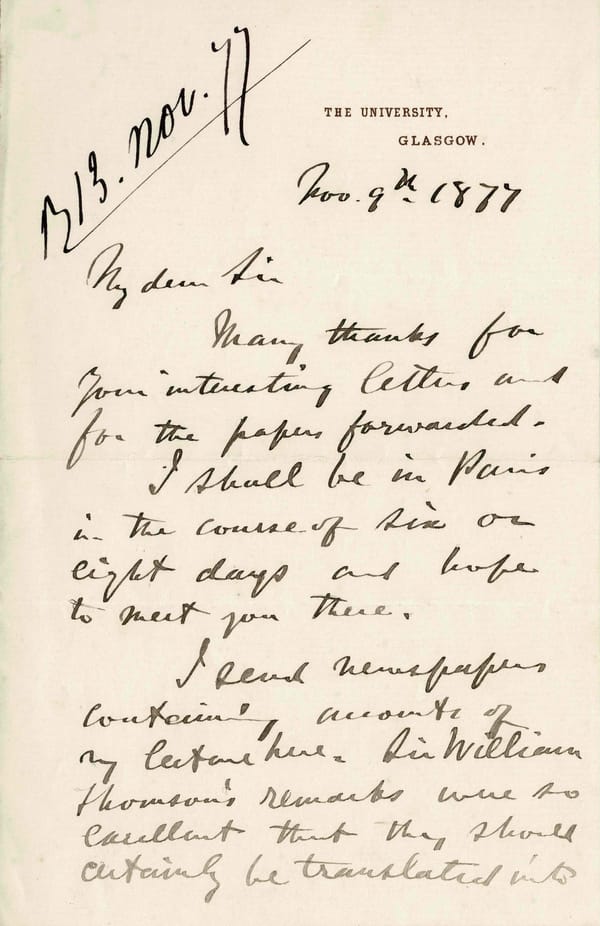The song Serge Gainsbourg dreamed Marlene Dietrich would sing
In 1959, a young Gainsbourg wrote a song for Marlene Dietrich, hoping she would perform it in Paris. Ignored by the star, the piece remained in the shadows. This manuscript reveals the early steps of a bold songwriter and a missed encounter between two cultural icons.
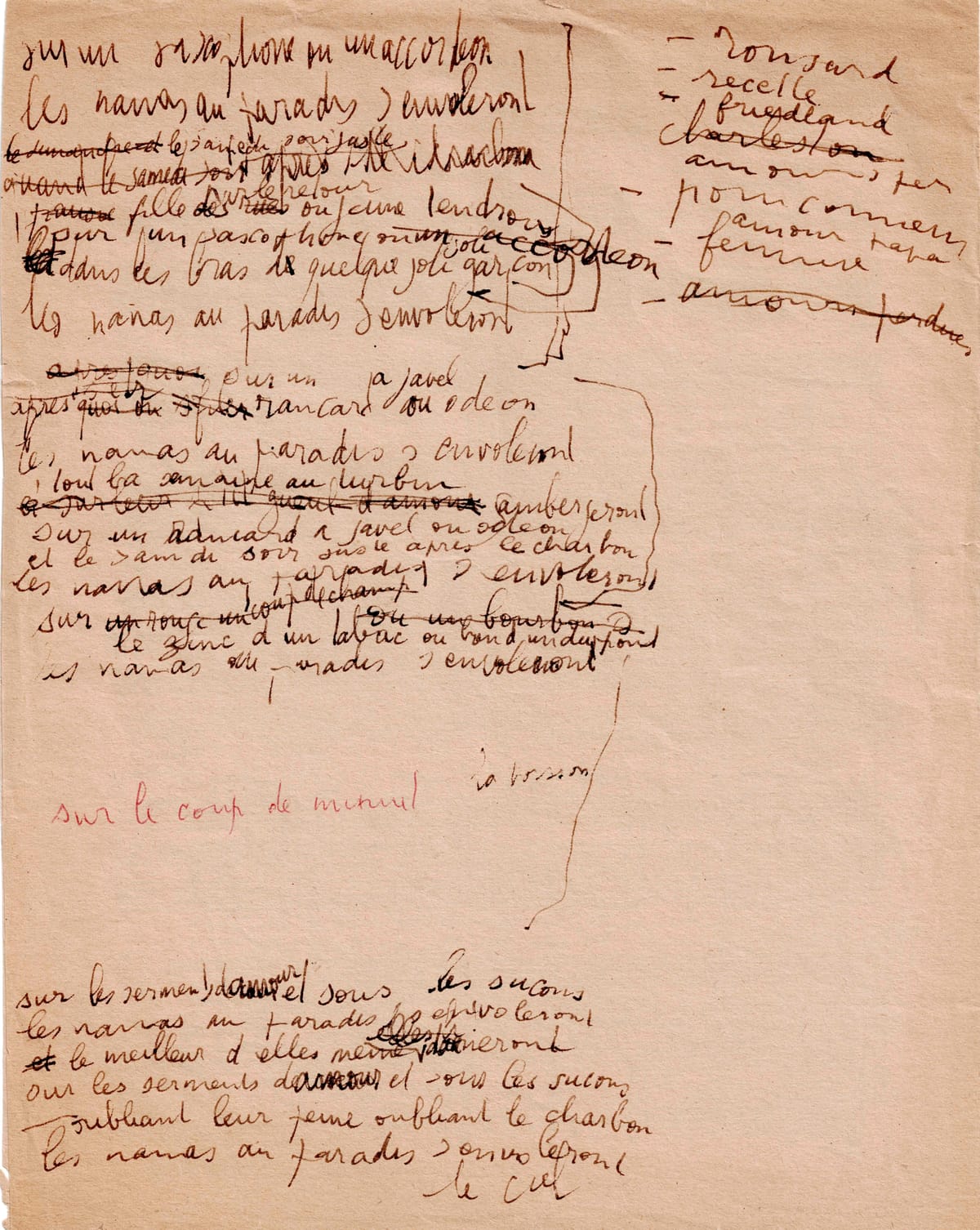
In the fall of 1959, a young and still little-known French songwriter named Serge Gainsbourg set his sights on an international star: Marlene Dietrich. In Paris, anticipation was building for Dietrich’s return to the stage after fourteen years. Jacques Canetti, a key figure in the French music scene, commissioned Gainsbourg to write two songs for her upcoming recital: “Le Cirque” and “Les Nanas au paradis.” On the back of a printed score, we find Gainsbourg’s draft of the latter—raw, densely written, full of cross-outs and edits. In this early version, he conjures a gritty, dreamlike Paris of street girls, smoky bars, and Saturday night dances.
On love's promises and under the hickeys
the girls will fly to paradise
and they’ll give the best of themselves
forgetting their sorrow, forgetting the coal…
This isn’t just a sketch, it’s a key artifact of a pivotal moment. Trained as a painter, Gainsbourg imagined Dietrich through intuition and research, blending Berlin cabaret, French poetic cinema, and his own melancholic irony. But who was Marlene Dietrich? Born in Berlin in 1901, she rose to international fame in the 1930s with her sultry voice, androgynous style, and unforgettable roles in films like The Blue Angel and Morocco. She became a Hollywood icon, a fashion legend, and a tireless anti-Nazi campaigner during World War II. By the late 1950s, she was performing worldwide, known for her commanding stage presence and magnetic allure.
Yet despite the effort, Dietrich never sang Gainsbourg’s songs. Overwhelmed by the media frenzy surrounding her Paris arrival, she likely never even heard of him. She opted instead for familiar titles. Gainsbourg’s songs were handed off to another singer: Catherine Sauvage, a powerful performer known for her interpretations of Léo Ferré. “Les Nanas au paradis” was recorded in 1960, but only released officially in 1996, five years after Gainsbourg’s death.
This draft was contributed by Julien Paganetti, a French expert in historical autographs and manuscripts based in Lyon, France. He is considered a leading authority in his field, both nationally and internationally. He has discovered and brought to light prestigious historical documents, and his clientele includes renowned collectors, institutions, and even former French presidents. Julien is truly passionate about his work and always eager to engage with fellow enthusiasts, particularly during international exhibitions.

